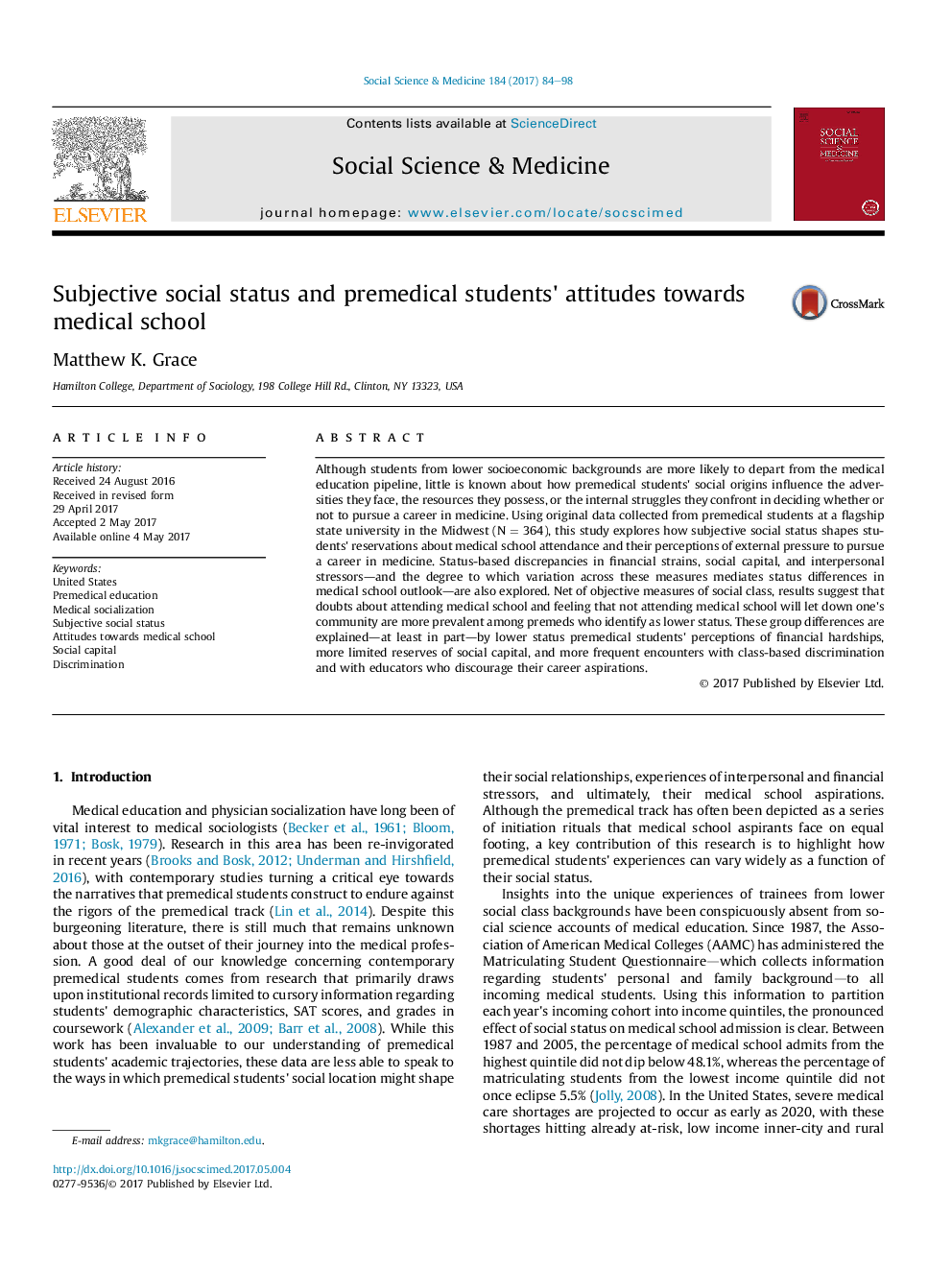| Article ID | Journal | Published Year | Pages | File Type |
|---|---|---|---|---|
| 5046487 | Social Science & Medicine | 2017 | 15 Pages |
•Little is known about how premeds' social status shapes medical school outlook.•Low status premeds experience greater doubts about attending medical school.•Lower status premeds internalize community expectations to attend medical school.•Divergent aspirations are largely explained by differences in financial strains.
Although students from lower socioeconomic backgrounds are more likely to depart from the medical education pipeline, little is known about how premedical students' social origins influence the adversities they face, the resources they possess, or the internal struggles they confront in deciding whether or not to pursue a career in medicine. Using original data collected from premedical students at a flagship state university in the Midwest (N = 364), this study explores how subjective social status shapes students' reservations about medical school attendance and their perceptions of external pressure to pursue a career in medicine. Status-based discrepancies in financial strains, social capital, and interpersonal stressors—and the degree to which variation across these measures mediates status differences in medical school outlook—are also explored. Net of objective measures of social class, results suggest that doubts about attending medical school and feeling that not attending medical school will let down one's community are more prevalent among premeds who identify as lower status. These group differences are explained—at least in part—by lower status premedical students' perceptions of financial hardships, more limited reserves of social capital, and more frequent encounters with class-based discrimination and with educators who discourage their career aspirations.
